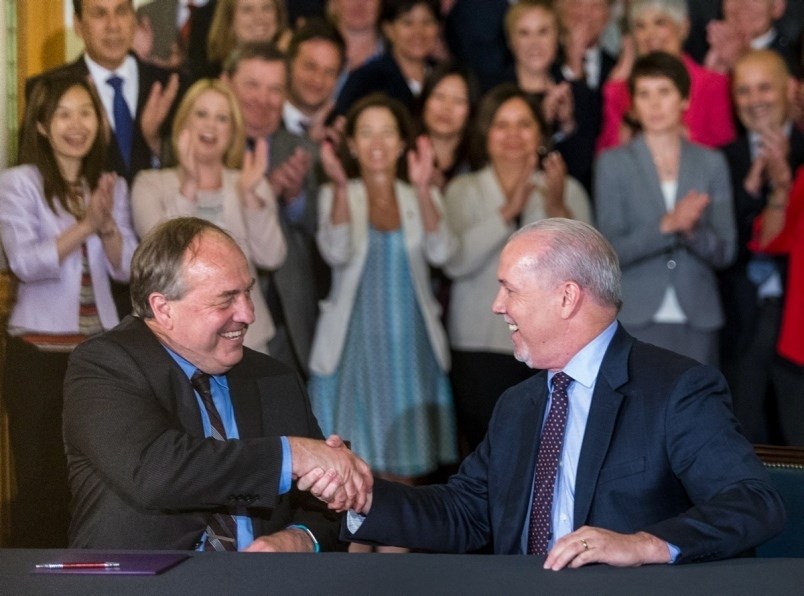And so the big-tent parties can heave a sigh of relief, while the B.C. Green Party can only look on despairingly as its best chance at escaping the political margins has vanished, likely for a very, very long time.
As well, British Columbia may have dodged a bullet that could have allowed the apparent rising tribalism and intolerance that is gripping much of the world to gain a foothold in this province.
Those are my main takeaways from the recently concluded referendum on electoral reform, which saw British Columbians decisively kick to the curb the idea that a proportional representation model for electing MLAs was a preferred option.
It is the third time in the past 15 years where voters have rejected the idea of getting rid of the current first-past-the-post system in favour of some kind of PR system.
Given the fraying of democracy in so many places, where minority interests disproportionately wield power over a collective majority, I am not surprised at the referendum outcome. Our current FPTP system usually produces stable, fairly moderate governments, and British Columbians seem more or less happy with that.
Less than half the population even bothered to take part in the referendum, an indication perhaps of the disinterest in changing voting systems.
After all, can anyone (no matter their political leanings) make the argument that any of the governments led by W.A.C. Bennett, Dave Barrett, Bill Bennett, Bill Vander Zalm, Mike Harcourt, Glen Clark, Gordon Campbell, Christy Clark or John Horgan were or are really horrible or extremist?
Of those administrations – all elected under FPTP – only the Vander Zalm regime could arguably be labelled a bit extreme, and that was really only regarding the abortion issue.
Moving to a PR system would have allowed fringe parties to potentially hold the balance of power in the legislature, and conceivably be able to push around larger parties that received more votes but need the support folks on the fringe to hold power.
In other words, the minority would have held the keys to the car and could insist on taking turns driving it. The price to pay in order to form government could have been a steep one, or one that could prove offensive to so many people.
If you doubt that, just have a view of the events unfolding in some European parliaments, where extremist parties (even Nazi ones) are wreaking havoc on the system. B.C. has long had a simmering undercurrent of racism and intolerance, and while confined to a very small part of the population, it could have evolved into some kind of political party.
The political fallout of this failed scheme is unclear.
Certainly, the B.C. Green party lost the most, since it had the most to gain from a change to PR. One has to wonder on whether the enthusiasm within the party itself will begin to wane with no big PR payoff in sight for at least a decade or so.
But will it wane to the point of withdrawing its support for the NDP in propping it up into power? I doubt it. I think their partnership will continue for a while yet.
The NDP will wear this referendum loss, but only to a point. It is arguably the biggest setback for the party since it formed government. However, for the vast majority of the voters, this was not even an issue so I can’t see it coming back to bite the New Democrats too hard at the next election.
One thing the NDP might be worried about though: in the key suburban ridings in Metro Vancouver that propelled the NDP into office, support for the PR option was particularly low. Clearly, some of its voter base parted ways with the party on this issue.
The B.C. Liberals are no doubt the biggest beneficiaries of the referendum outcome. A PR system would have in all likelihood led to the breakup of the free enterprise coalition that makes up that party, as conservatives and liberals would have gone their separate ways.
The other chief certainty is that electoral reform in this province is officially dead. Now everyone can get on with solving much more urgent and pressing problems.
Keith Baldrey is chief political reporter for Global BC. Keith.Baldrey@globalnews.ca
What are your thoughts? Send us a letter via email by clicking here or post a comment below.




